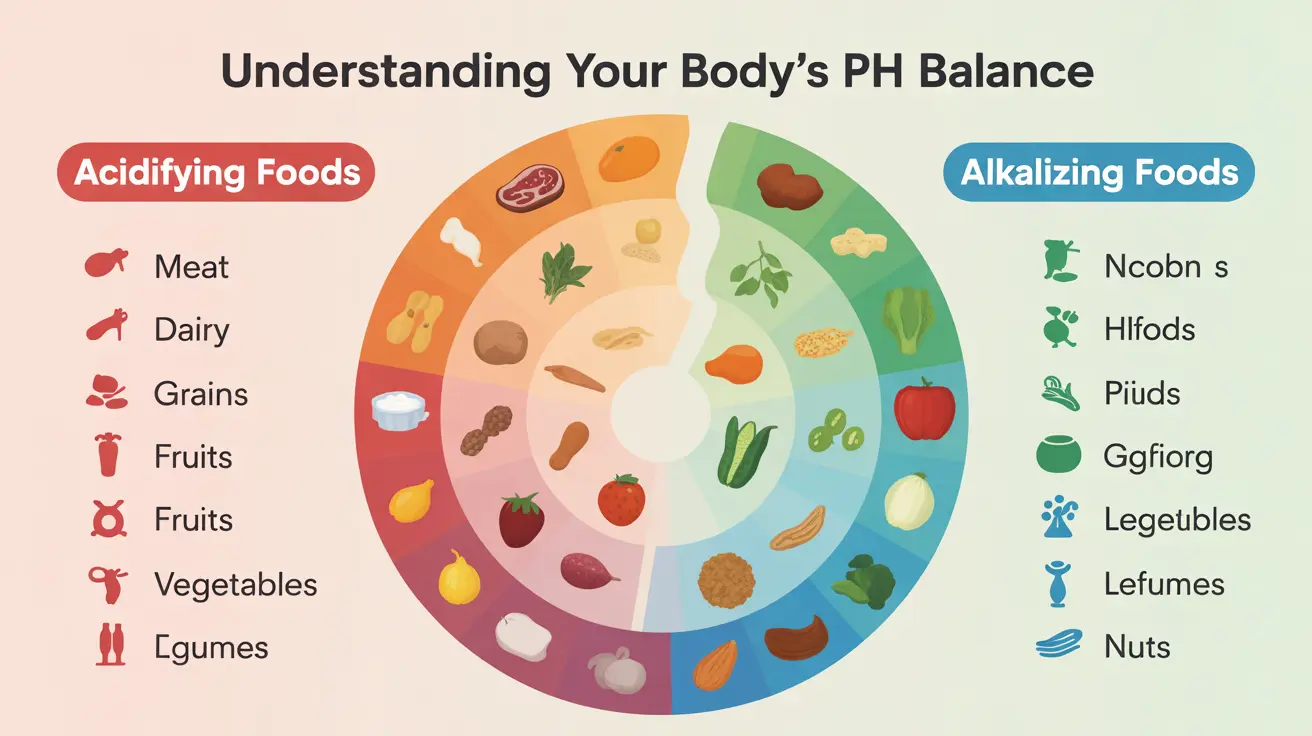Your urine's pH level is a crucial indicator of your body's acid-base balance and can provide valuable insights into your overall health. A urine pH of 6.0 falls within the normal range and typically indicates that your body is maintaining proper acid-base homeostasis.
Understanding what your urine pH means and how to maintain healthy levels can help you make informed decisions about your diet and lifestyle. Let's explore the significance of a 6.0 urine pH and what factors influence these levels.
What Does a Urine pH of 6.0 Indicate?
A urine pH of 6.0 is considered slightly acidic but falls within the normal range of 4.5 to 8.0. This level suggests that your kidneys are effectively regulating your body's acid-base balance through proper filtration and excretion of waste products.
Common factors that can result in a urine pH of 6.0 include:
- Regular consumption of animal proteins
- Normal metabolic processes
- Adequate hydration levels
- Balanced mineral intake
The Role of Diet in Urine pH
Your dietary choices significantly impact your urine pH levels. Different foods can make your urine more acidic or alkaline:
Acidifying Foods
- Meat and poultry
- Dairy products
- Eggs
- Most grains
- Fish
Alkalizing Foods
- Fresh vegetables
- Most fruits
- Legumes
- Nuts and seeds
- Herbs and spices
Impact of Hydration on Urine pH
Proper hydration plays a vital role in maintaining healthy urine pH levels. When you're dehydrated, your urine becomes more concentrated, which can affect its pH level. Drinking adequate water helps your kidneys efficiently filter waste products and maintain appropriate pH balance.
Health Conditions and Urine pH
Several health conditions can be associated with changes in urine pH levels:
- Kidney stones
- Urinary tract infections
- Metabolic disorders
- Respiratory conditions
- Diabetic ketoacidosis
Maintaining Healthy Urine pH
To maintain a healthy urine pH, consider these lifestyle modifications:
- Stay well-hydrated throughout the day
- Eat a balanced diet with plenty of fruits and vegetables
- Monitor protein intake
- Reduce processed food consumption
- Regular exercise
- Stress management
Frequently Asked Questions
What does a urine pH of 6.0 mean for my health?
A urine pH of 6.0 is within the normal range and typically indicates good kidney function and proper acid-base balance in your body. This slightly acidic level is common and generally not a cause for concern.
How does diet affect the pH level of my urine, and what foods help maintain a healthy pH?
Diet significantly influences urine pH. Animal proteins tend to make urine more acidic, while fruits and vegetables generally make it more alkaline. A balanced diet including both food groups helps maintain healthy pH levels.
Can dehydration cause changes in urine pH, and how does this happen?
Yes, dehydration can affect urine pH by concentrating waste products in your urine. When you're dehydrated, your urine becomes more concentrated and typically more acidic. Maintaining proper hydration helps your kidneys effectively regulate pH levels.
What are some common health issues associated with abnormal urine pH levels?
Abnormal urine pH levels can be associated with kidney stones, urinary tract infections, metabolic disorders, and certain respiratory conditions. Consistent abnormal readings should be evaluated by a healthcare provider.
How can I maintain a healthy urine pH through lifestyle changes and diet?
Maintain healthy urine pH by staying well-hydrated, eating a balanced diet rich in fruits and vegetables, moderating protein intake, exercising regularly, and managing stress. Regular monitoring and consistency with healthy habits are key to maintaining optimal levels.




